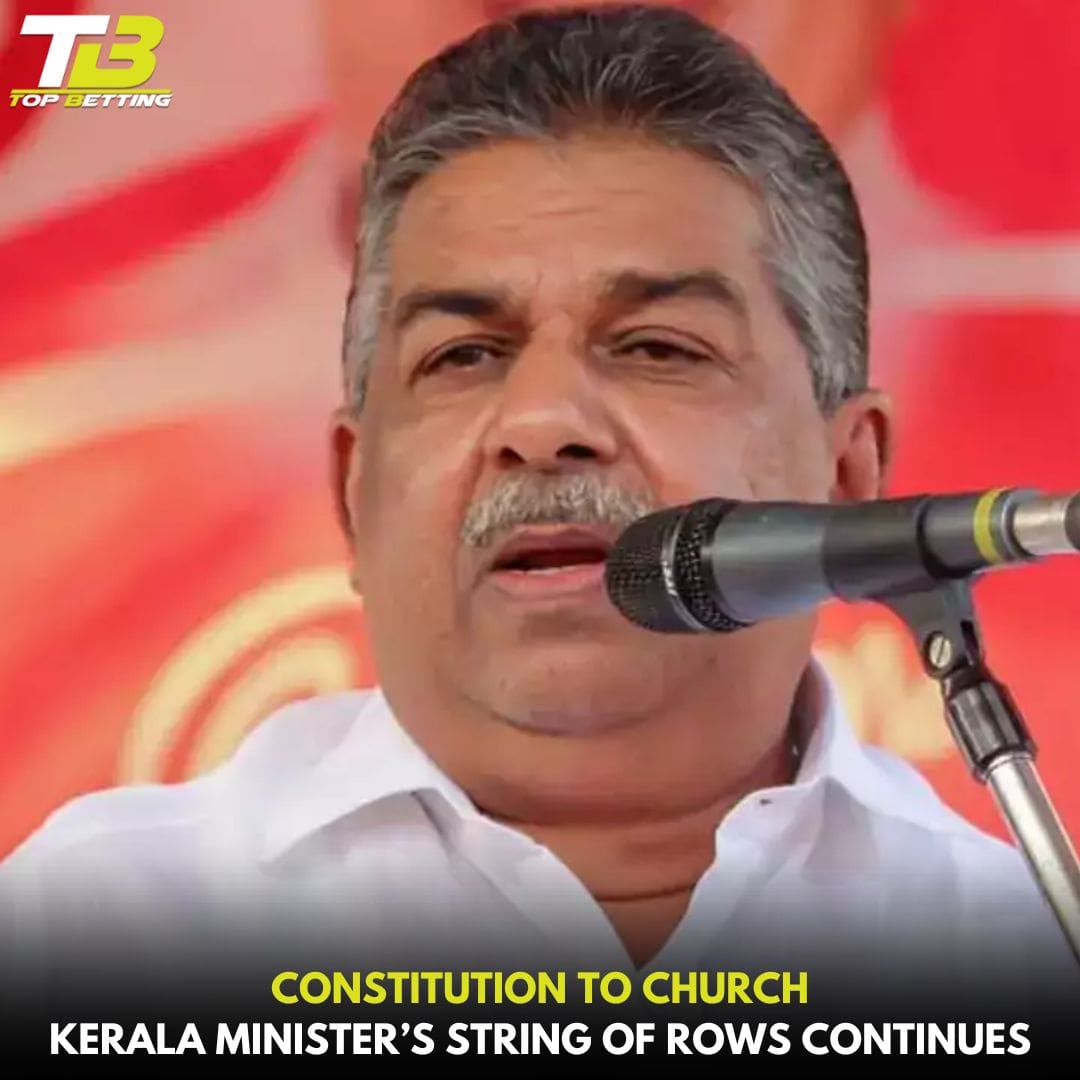
Kerala Minister Controversies
CPI(M) leader Saji Cheriyan, who last year poked holes in the Constitution, now suggests Church leaders who met PM were attracted by ‘wine and cakes’; in retraction after Church objects, he says he only withdraws the ‘wine and cakes’ part
Kerala Fisheries and Cultural Affairs Minister Saji Cheriyan, who has often landed his party the CPI(M) and government in trouble, was Tuesday forced to withdraw the controversial remarks he made on Christian leaders who participated in Prime Minister Narendra Modi’s Christmas programme in New Delhi.
“They (the leaders) were silent on the violence in Manipur violence but had ‘goosebumps’ when they were ‘served cakes and wines’,” the minister had said, leading to protests from the Christian community. The president of the Kerala Catholic Bishops Council, Cardinal Mar Baselios Cleemis, said Chirstians would not cooperate with the state government unless Cheriyan withdrew his remarks, and said the Church would attend meetings convened by any political leader, be it the CM or the PM.
But even at his press conference Tuesday, Cheriyan made it clear his new statement was only a partial retraction. “I withdraw the remarks related to ‘wine and cake’, if the Church found it insulting. However, there is no change in my political stand that the Church leaders should have raised the issue of Manipur in their meeting with the PM,” the minister said, referring to the attack on churches in the ongoing unrest in the Northeast state.
Cheriyan is hardly new to controversy. Last year, his remarks on the Constitution had set off a political storm.
Speaking at a party function in Pathanamthitta, Cheriyan had said, “A beautiful Constitution has been written in the country. I would say the Constitution has been written in such a manner as to ensure that the maximum number of people are looted. What the British prepared, Indians penned down. Over the last 75 years that it has been implemented, I would say this is a Constitution that ensures the exploitation of the maximum number of people in the country.”
Cheriyan also dismissed ‘secularism’ and ‘democracy’ as “kuntham” and “kudachakran’’ – spear and umbrella spoke, a slang to suggest insignificant matters. “The writers of the Constitution inserted a few good things such as democracy and secularism here and there, but the Constitution is a tool to exploit the common man,” he said.
A two-time MLA from Chengannur, Cheriyan earlier raised questions on the morality of Anupama Chandran, who had accused the CPI(M) establishment and her parents of forcibly taking away her newborn child and putting him up for adoption without her consent.
After the Congress and BJP took to the streets demanding Cheriyan’s resignation following his remarks on the Constitution, the Governor had stepped in and sought details of the minister’s speech. Congress Leader of the Opposition V D Satheesan had called his description of “secularism” and “democracy” as “a violation of his oath of office”.

Cheriyan’s remarks had also come at a time when the Congress was in the midst of a series of protests against the CPI(M), including his pet K-Rail project.
BJP state president K Surendran had also said Cheriyan had no right to continue in office. “He is duty bound to protect the Constitution. He has taken an oath to uphold the Constitution. His words smack of the Communists’ disdain for the Constitution,’’ he had said.
In Cheriyan’s defence, CPI(M) Politburo member M A Baby had said, “He didn’t criticise the Constitution, but only spoke out against centres of power. If there is any lapse on the minister’s part, it will be rectified.’’
Insisting that his remarks had been distorted, Cheriyan had said at the time, “As a public servant, I respect the Constitution and uphold its noble values. My party is at the forefront of upholding the demand to protect our Constitution and the values it upholds.’’
The tumultuous journey of a Kerala minister continues as he becomes entangled in yet another controversy, weaving through the intricate threads of constitutional matters and ecclesiastical affairs. This latest chapter adds yet another layer to the ongoing string of rows that have marked the tenure of the minister, propelling his name into the spotlight for all the contentious reasons.
The controversy unfolds against the backdrop of the minister navigating the delicate intersection of constitutional principles and the workings of the church. This intersection has become a challenging terrain, evoking discussions and debates on the appropriate role of public officials in such sensitive matters.
The minister’s recurrent entanglements have not gone unnoticed, drawing public attention and scrutiny. Each new episode seems to amplify the complexities surrounding his role and the government’s stance on these intricate issues.
As the string of rows persists, questions linger about how the minister and the government will address the concerns raised by various quarters. The ongoing controversies underscore the tightrope walk that public officials often face when navigating the diverse landscape of constitutional considerations and religious institutions. The evolving narrative leaves observers and the public awaiting the resolution of these disputes and pondering the broader implications for governance and the delicate balance between state matters and religious domains.












